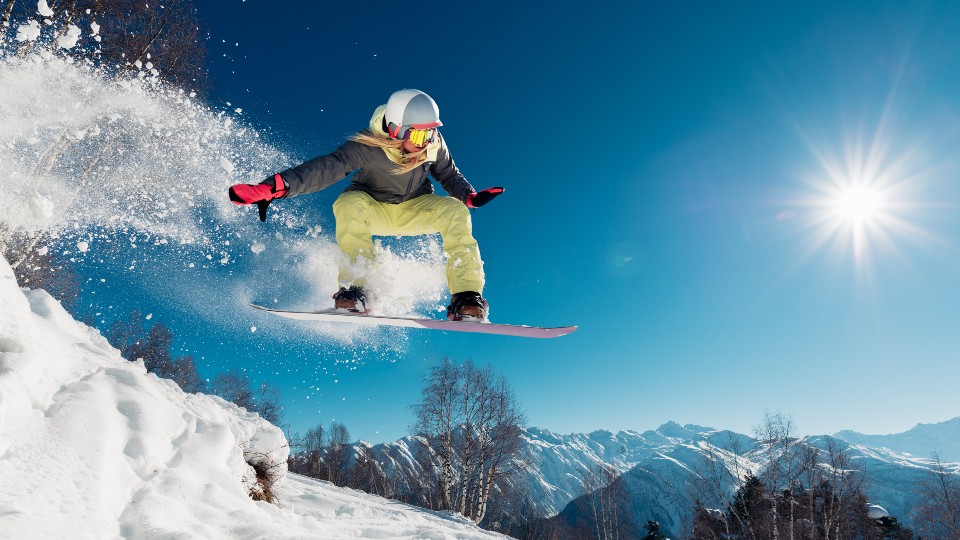Slippery Slopes: How Climate Change is threatening the 2022 Winter Olympics, hears from leading skiers, snowboarders and bobsledders on their fears for the future of snow sports as our climate changes. It is produced by the Sport Ecology Group at Loughborough University and Protect Our Winters.
Over 100 snow generators and 300 snow-making guns are working flat out to cover the ski slopes of the 2022 Winter Olympics in artificial snow ahead of the Games opening on February 4, with the Beijing Games set to be the first Winter Games on virtually 100% artificial snow. This is not only energy and water-intensive, frequently using chemicals to slow melt, but also delivers a surface that many competitors say is unpredictable and potentially dangerous.
Dr Maddy Orr (Loughborough University London) is one of the lead researchers on the study. She explained: “Beijing 2022 is not unique in facing issues with lack of snow: this is a recurring issue in mountain areas all around the world. Our goal was not to name and shame Beijing, rather we wanted to illustrate the challenges at hand with snow sports moving forward and hopefully start a conversation about how sport events might adapt to a changing climate."
Scottish freestyle skier Laura Donaldson warns that if “freestyle super pipes are formed from snow-making machines in a poor [natural snow] season, the walls of the pipe are solid, vertical ice and the pipe floor is solid ice. This is dangerous for athletes, some have died.”
Two-time Canadian Olympian and leading freestyle skier Philippe Marquis tells of the “scary changes in the basic structure of ice formation and the landscape of glaciers” he has seen in recent years. He details the increase in injuries “caused by the lack of practice on snow.” He explains how the “conditions are definitely more dangerous than what we've seen before” and issues a stark warning of his concern for athletes’ safety going forward.
Czech biathlete Jessica Jislová is another competitor worried by the continuing trend of unstable winter weather and the accompanying decline in snow conditions, emphasising how “extreme weather changes can be dangerous for athletes.”
Navigating erratic snow seasons and rapid melt of low level resorts are now the norm for many competitors. The risk is clear: man made warming is threatening the long-term future of winter sports. It is also reducing the number of climatically suitable host venues for the Winter Olympiad, as the report details.
Of the 21 venues used for the Winter Games since Chamonix 1924, scientists think that by 2050 only 10 will have the 'climate suitability' and natural snowfall levels to host an event. Chamnix is now rated 'high risk' along with venues in Norway, France and Austria, while Vancouver, Sochi and Squaw Valley in the US are deemed 'unreliable''.
"I have seen huge changes in the snowpack in ski resorts over the winters and especially in glacier cover/condition in those 30 years and the changes are hugely concerning on many levels," says Lesley McKenna, Three-time GB Olympian in snowboard halfpipe (2002, 2006 and 2010 Winter Games), Protect Our Winters UK Ambassador.
"I have cherished the last three decades in snowsports. But I harbour mounting fears for where we could be in another 30 years’ time."
*Slippery Slopes: How Climate Change is threatening the 2022 Winter Olympics is available to download at https://www.sportecology.org/research.
